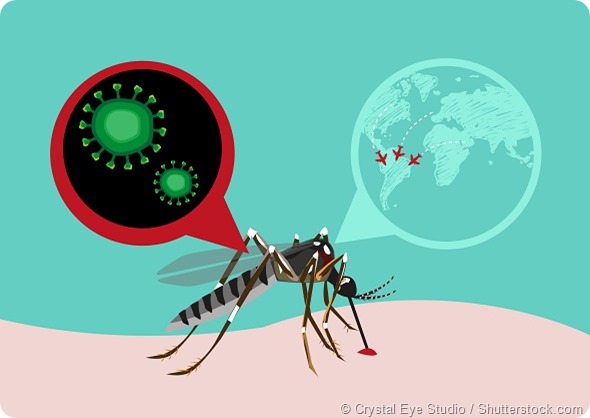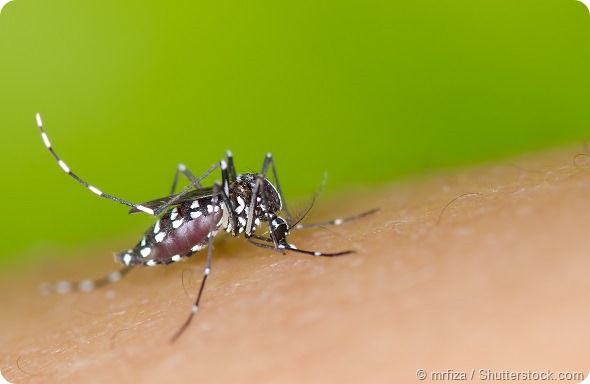In short, not enough is known about the virus. It was first discovered by modern science in 1947/48 but it was around for thousands of years before that.
It has been a bit of a black box until Zika re-emerged in 2007 in Southeast Asia. Prior to that it was moving around slowly in Africa.
It is not known exactly why the virus re-emerged in 2007 but it is likely to be down to people movement.

Is there conclusive evidence to support a causal link between microcephaly, Guillain-Barré syndrome and the Zika virus?
The link between the Zika virus and Guillain-Barré on the one hand, and pregnancy and the virus affecting the fetus in terms of microcephaly on the other, is still not confirmed conclusively.
However, there is clear evidence that the Zika virus can move across the placenta as the virus has been isolated from the brain of a fetus that was infected in utero.

Why don’t any vaccines currently exist?
Vaccines are made by pharmaceutical companies, so they need to have a market. There are high costs attached to vaccine production on a large scale.
Previously the Zika virus was not causing many problems in Africa as 98% who are infected have few symptoms and may not even know they have it. Consequently there didn’t seem to be a need to produce a vaccine.
However, since the evidence that Zika might cause microcephaly, there is a conceivable need to produce a vaccine.
The last time we had a need like this was when I was first working in virology in the early 60’s when 20,000 children in the US were infected with rubella that had crossed the placenta. This had a huge impact on society and sparked the development of the MMR vaccine.
Realistically how long will it be before we have an approved Zika vaccine?
South America are very experienced at making vaccines such as the yellow fever vaccine. They also have a big scientific infrastructure.
Given this experience and the US’s interest given their proximity, I think it will take 18 months to 2 years to create an approved Zika vaccine.
Already people are starting to experiment but it will take time before they create one that’s safe.
Can the Zika virus spread from person to person?
Yes it can, but very infrequently. The vast majority of people get the Zika virus from a mosquito bite.
We know that 99.99% of people who get Zika get it from a bite from an Aedes aegypti mosquito. However, for about 5 days after you get bitten the virus multiplies in the blood so you could spread it to someone else if you exchange needles, if you donate blood or possibly even through sex. This is because Zika is not just in your blood but also your organs and bodily fluids.
Whilst a vaccine is being developed, what control measures should be put in place? How important is the use of condoms in preventing the spread of Zika?
Given the risks, it is sensible for men to use condoms to stop the spread of the virus.
We have to act now. Contraception is an immediate thing we can do. For example, men going to the Olympics may pick up the virus so when they come back they should use condoms and if their partner is pregnant, use them for the duration of the pregnancy.

How effective are mosquito control measures likely to be at preventing the spread of disease?
Stopping mosquitoes is also extremely important. South America has experience of getting rid of these mosquitoes before when they were trying to get rid of yellow fever so hopefully they can do it again.
It is difficult to get rid of them though as the Aedes aegypti feeds on five different people. The male is vegetarian, but the female needs a meal to give her a boost when reproducing.

Female Aedes aegypti also feed throughout the day so people need to wear anti-mosquito repellents all day and think about nets.
If a woman is pregnant, or thinking of becoming pregnant, she should consider postponing travel to South America at the moment and seek advice from authorities such as the Centers for Disease Control and Prevention.
Can you please outline RB’s Zika Relief Package? What impact do you think this will have?
I was very impressed with the initiative. RB is a consumer health and hygiene company who have experience of providing support in disease outbreaks such as this. They have made a generous donation both in terms of kind and cash to the international efforts and they hope other companies will also join in the fight against the Zika virus.
I suspect this will work and I hope it will do as there is a large need as the virus is afflicting the poorest parts of South America.
What do you think the future holds for the spread of Zika?
I think the future looks bleak from the virus’ point of view and its carrier as we will be using mosquito repellents, destroying the habitats where the females lay their eggs, killing the female mosquitoes and so forth. We will also be developing a vaccine, which can be done.
Where can readers find more information?
I’m also in the process of finalizing the 5th edition of my textbook Human Virology, Oxford University Press. Here is the 4th edition: https://global.oup.com/uk/orc/
About Professor John Oxford
John Oxford is Emeritus Professor of Virology at Queen Mary’s School of Medicine and Dentistry. He is Founder of Retroscreen Virology Ltd and Oxford Media and Medicine Ltd. He has co-authored two standard texts: ‘Influenza, the Viruses and the Disease with Sir Charles Stuart-Harris and G.C. Schild and most recently ‘Human Virology, a Text for Students of Medicine, Dentistry and Microbiology’ with L. Collier and P. Kellam now in its fourth edition, published by Oxford University Press.
Professor Oxford has also published 300 scientific papers. His research interest is the pathogenicity of influenza, in particular the origin and nature of 1918 Spanish Influenza strain, which he combines with conducting clinical trials using new influenza vaccines and antiviral drugs. This research has been featured on Science TV programmes recently in the UK, USA, Germany and Holland.
He was awarded communicator for the year for the influenza pandemic by the Society of Applied Microbiology and top communicator by the Society of Journalists and placed amongst the 1000 most influential Londoners by the Independent and Evening Standard newspapers.
He has recently been awarded a D.Sc for his research work on virology and as a science communicator, and elected a Fellow of the Royal College of Physicians of Edinburgh (FRCPE).